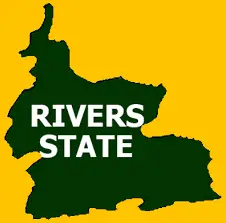News
Commissioner: Cross River Is Working To Tackle Floods

The Cross River State Government has said it is taking steps towards containing the impact of any eventual flooding in the state.
The Cross River Commissioner for Environment, Mr Moses Osogi, stated this following predictions by the Nigerian Meteorological Agency.
Osogi told the News Agency of Nigeria in Calabar on Friday that the plan followed the 2024 prediction by the Nigerian Meteorological Agency NiMet which listed the state as flood-prone.
He said that the state government had made arrangements towards reducing the impact of flooding in the state during the year.
“We are doing everything necessary to ensure that the impact is reduced to the barest minimum, we shall also ensure that those in flood-prone areas are safe.
“Apart from the sensitisation programmes being carried out by the government, those in flood prone areas have been advised to move to the upland,” he said.
The commissioner said that although flooding was a natural occurrence, the location of Cross River made it prone to such occurrence.
“As a government, we are aware of this fact, we are working in line with the prediction and warnings of NiMet.
“As part of efforts to mitigate the impact, we have cleared most drainage and water channels across the state for easy flow of water.
“Those in the riverine and flood-prone areas have also been advised to relocate to the upland for safety.
“For those moving, the government, through the State Emergency Management Agency is working on shelter for them,” he said.
Osogi warned residents of the state against erecting structures on waterways, saying that the state government would prosecute anyone found flouting the order.
It would be recalled that NiMet in its 2024 annual flood outlook, said that 148 local governments in 31 states fell within high flood risk areas.
Only recently, the Minister of Water Resources and Sanitation, Joseph Utserv, said that some states had already started experiencing varying levels of flooding and its associated disasters.
He stated that most of the flood incidents recorded so far were flash or urban floods, resulting from high rainfall and poor or blocked drainage systems.
NAN




